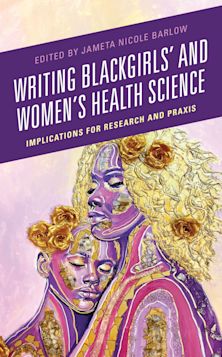Psychological Borders in Europe and the United States
Contemporary Nationalism, Nativism, and Populism
Psychological Borders in Europe and the United States
Contemporary Nationalism, Nativism, and Populism
This product is usually dispatched within 1 week
- Delivery and returns info
-
Free US delivery on orders $35 or over
Description
Psychological Borders in Europe and the United States: Contemporary Nationalism, Nativism, and Populism presents an integrative sociopolitical and psychological analysis model to examine contemporary sociopolitical rising ideologies in Europe and the United States; specifically, nationalism, nativism, and populism. Further, this book explores processes involved in the construction and sociopolitical mobilization of large, group identities. Political psychology is introduced to discuss the formation of national and psychological borders and their manifestations, including dynamics of identity driven aggression. The connection between the rise of ideologies, such as nativism and populism, and historical collective traumas is discussed, highlighting the role of social re-enactments, identity transformation, and large collective mourning to contemporary sociopolitical dynamics in Europe and the United States. Ethnic, racial, and intergroup conflict, and the role of immigration and asylum policy in maintaining, changing, and transforming existing collective identities is discussed, to then examine the war between Russia and the Ukraine. This book includes specific case applications to European countries and the United States, where nationalism, nativism, and populism have been on the ascendant.
Table of Contents
Chapter 1. Introduction: Nationalism, Nativism and Populism: What's the Difference?
Chapter 2. Nationalism
Chapter 3. Nativism
Chapter 4. Nativism, War, the Ku Klux Klan and White Power Movements
Chapter 5. Populism
Part II. Construction and Sociopolitical Mobilization of Large, Group Identities: The Integrated Sociopolitical and Psychological Analysis Model
Chapter 6. Mobilization of Large Group Identities: The Case of the Identitarian Movement
Chapter 7. Integrated Sociopolitical Analysis: Individual and Collective Identity Constructions
Part III. Political Psychology, Borders and Identity Wars
Chapter 8. Integrated Psychological Analysis: Political Psychology, Borders and Identity Wars in Europe and the United States
Part IV: An Integrated Sociopolitical and Psychological Approach to Contemporary, Identity-Driven Conflict and Historical Collective Traumas
Chapter 9. The ISPA Approach to Identity Driven Conflict and Historical Collective Traumas
Chapter 10. Historical Collective Traumas and Resistance to Identity Transformation and Mourning: American Immigration Policy
Chapter 11. Russia and Ukraine: The Development of a New Identity and Thwarted Mourning
References
Index
About the Author
Product details
| Published | Oct 31 2023 |
|---|---|
| Format | Hardback |
| Edition | 1st |
| Extent | 210 |
| ISBN | 9781793610614 |
| Imprint | Lexington Books |
| Dimensions | 9 x 6 inches |
| Publisher | Bloomsbury Publishing |
Reviews

ONLINE RESOURCES
Bloomsbury Collections
This book is available on Bloomsbury Collections where your library has access.

































